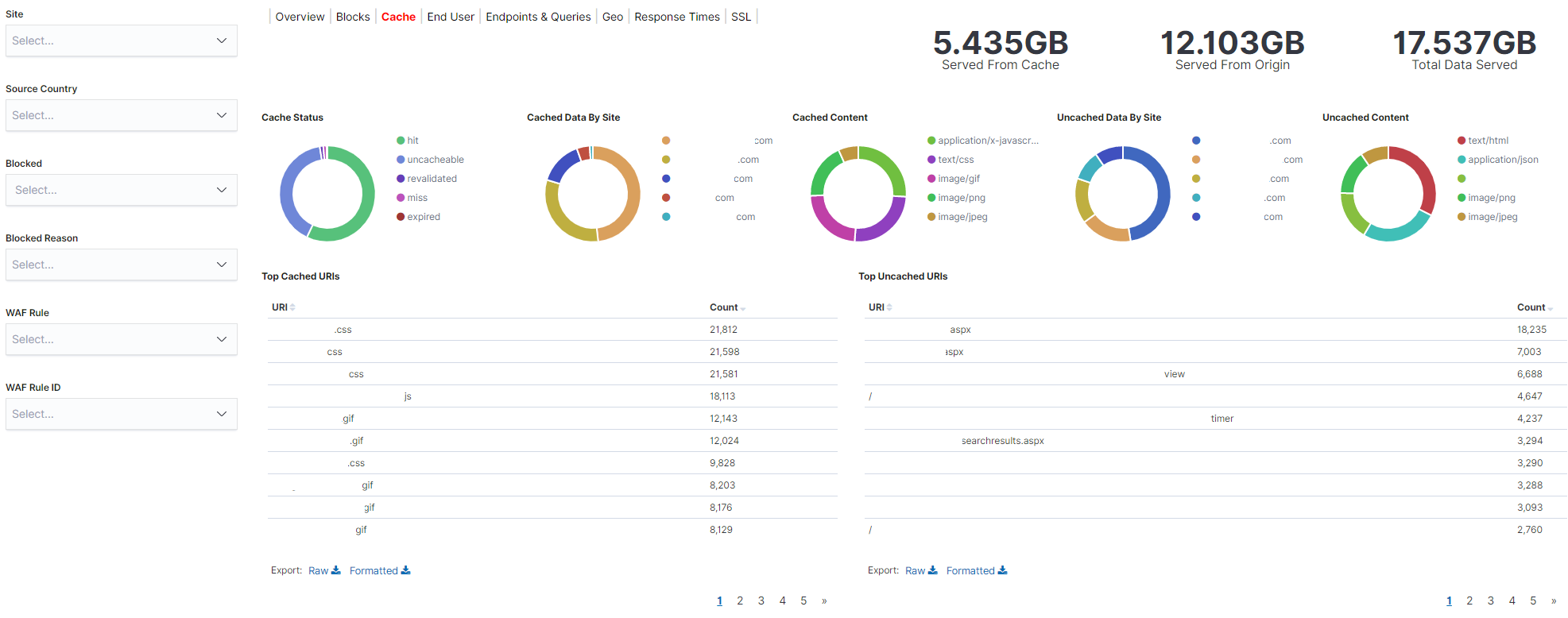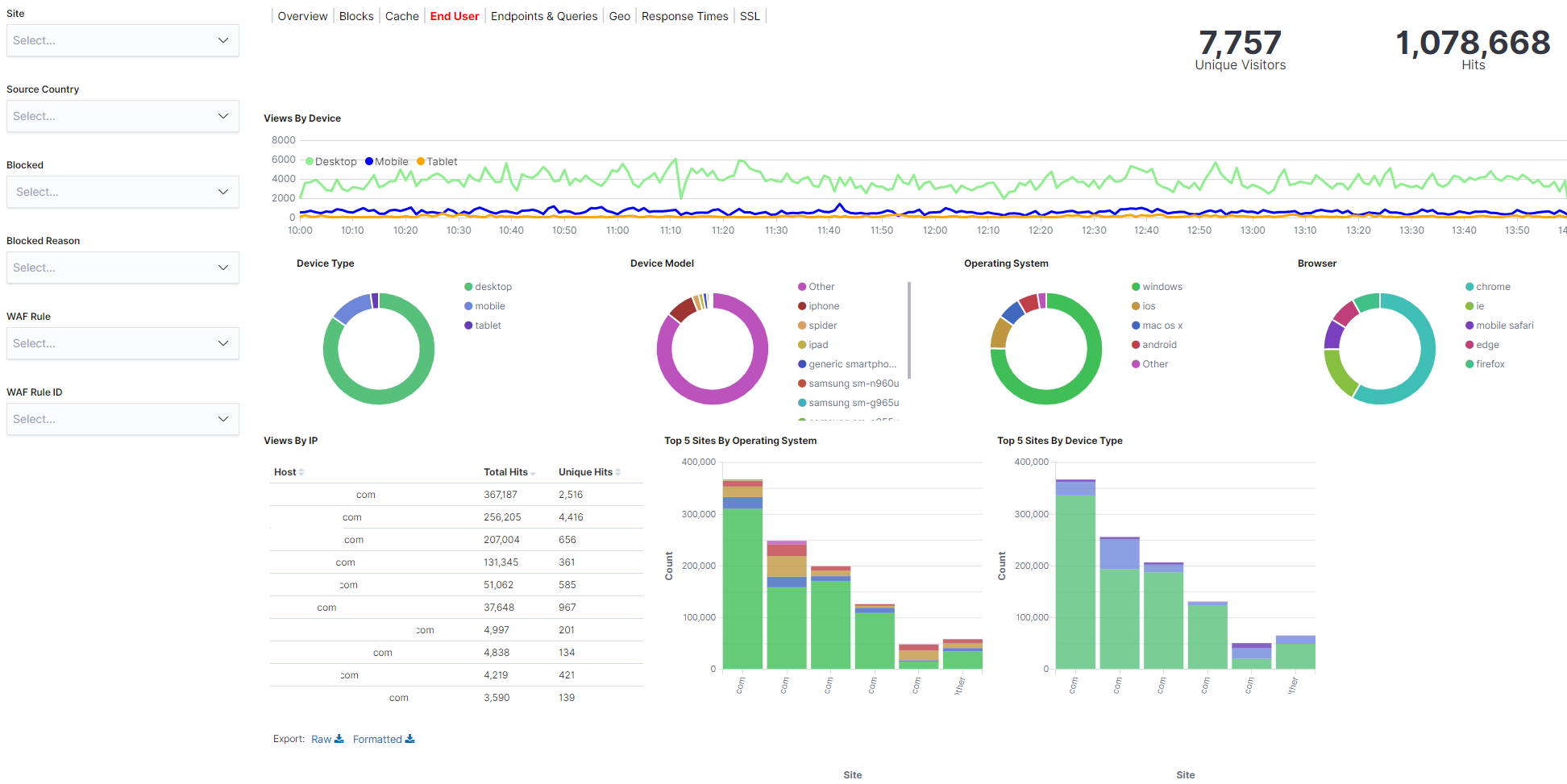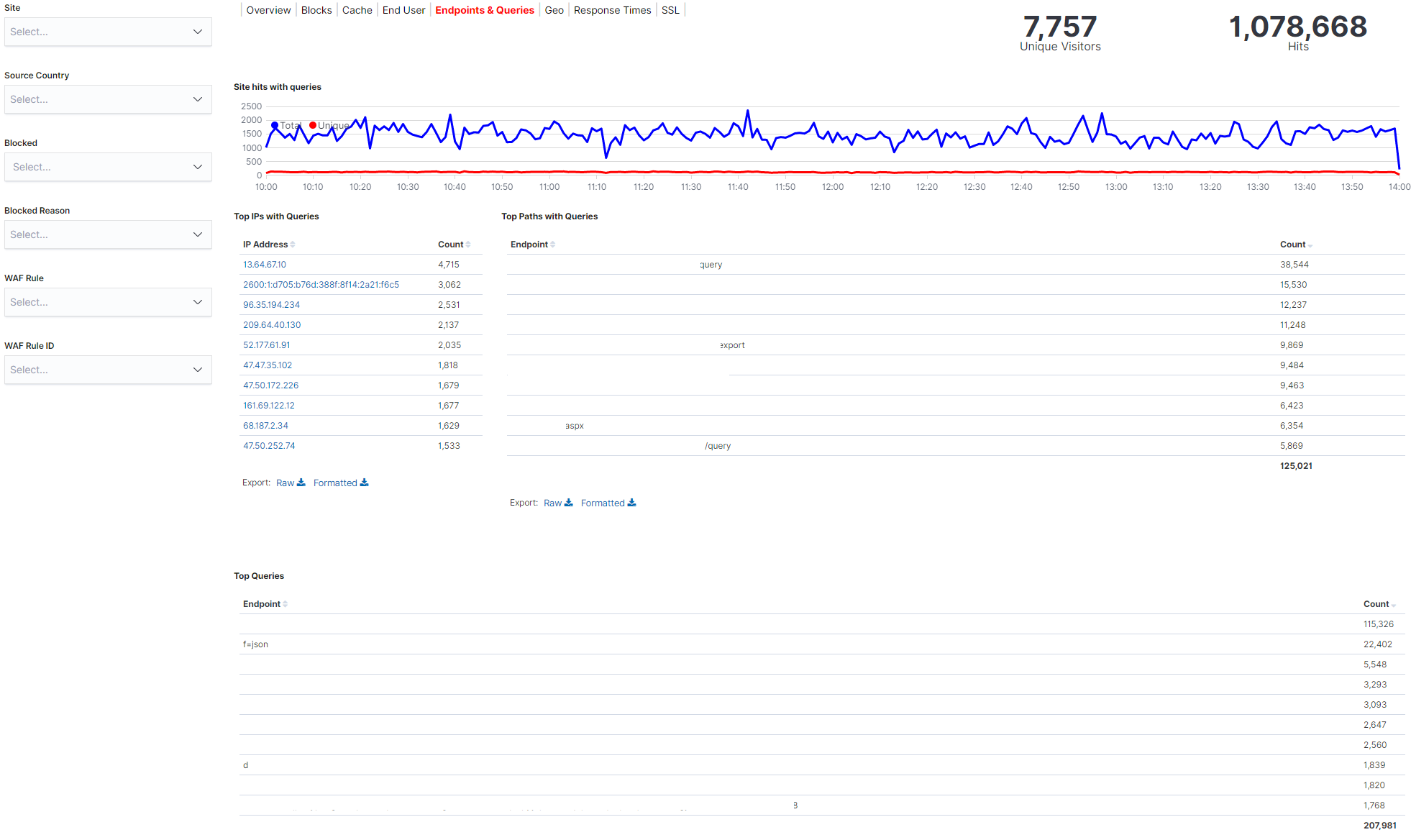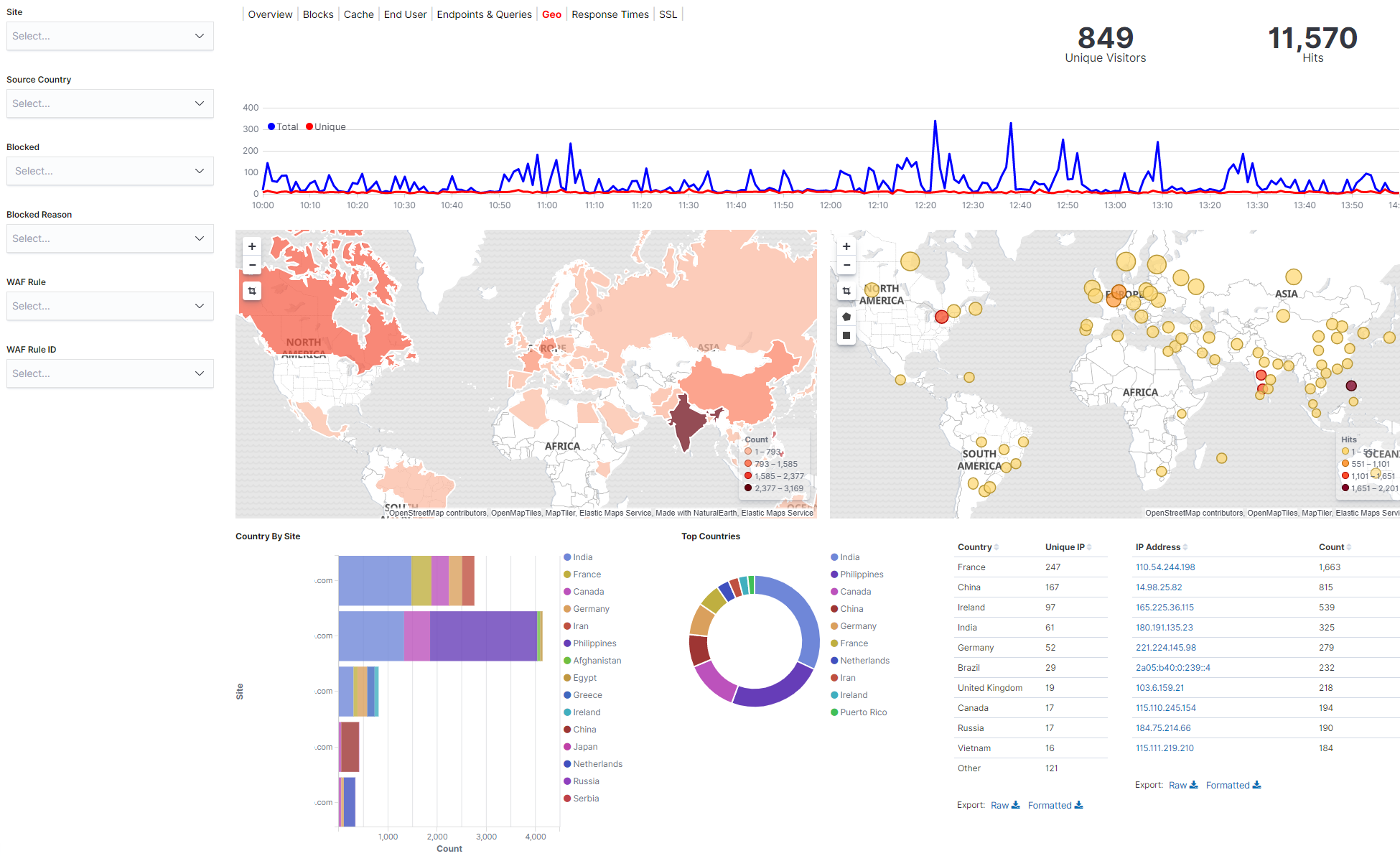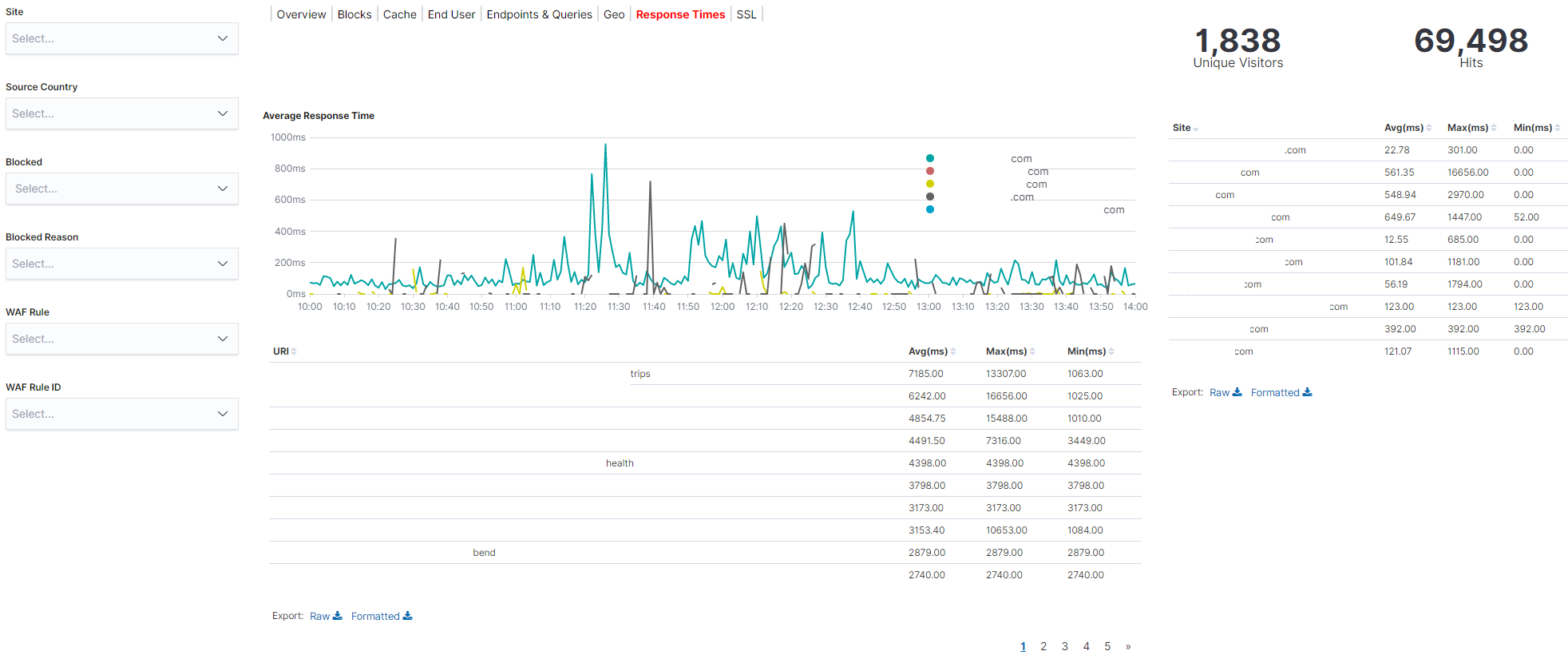ElasticFlare pulls CloudFlare firewall and audit logs, then ingests and enriches the data using the Elastic Stack.
- Utilizes PowerShell pull down logs.
- Geo-IP enrichment on client and data-center IPs.
- Client user agent parsing
- Identify blocked requests and reason for blocks.
- Email notification when CloudFlare fields are added or removed.
10/6/2020:
- Combined the separate dictionary and log pull scripts into a single PowerShell script.
- Built out the dictionary building to eliminate the HTTP calls made in the logstash pipeline. This was done to improve event processing speed and to reduce the number of calls to CloudFlare. Dictionary building appears to have had minimal impact on script processing time.
- Added retention flag check.
- General cleanup and scripting improvements
10/14/2019: Significant changes have been made. These changes were designed to provide uniform field naming and improve ease of use. Previous implementations will need to re-ingest all data to unify field names and data types for accurate representation on dashboards and in searches.
I recommend configuring two scheduled tasks in Windows to execute the scripts on a set schedule. See the CloudFlare ELS API documentation for additional support and limitations.
Built on Elastic Stack 7.2.0. Verified functional up to 7.9.2
Feedback and requests for additional features or enrichments is always welcome.

